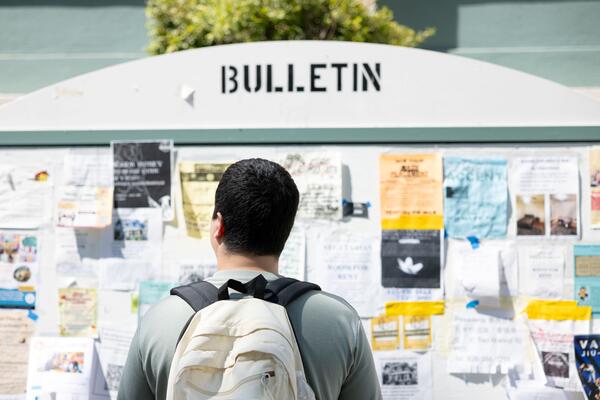
First-Year Survey Data Prompts New Partnerships, Coms Strategy
Participation in extracurricular activities and campus events is tied to student retention, but a significant number of students don’t get plugged in. A 2024 survey by Inside Higher Ed and Generation Lab found that 26 percent of respondents had never attended a campus event and 35 percent weren’t involved in activities outside the classroom.
About three in 10 college students said they’d be more involved on campus if they were more aware of the available extracurricular opportunities. Staff at the University of Arizona recognized this awareness gap and, for the past decade, have surveyed incoming students to identify their interests and provide them with tailored resources.
The New Student Information Form provides campus leaders with actionable data and information about the students joining the Wildcat community.
Survey Says
According to a 2024 survey of student success leaders by Inside Higher Ed and Hanover Research, 44 percent of respondents said their institution is highly effective at collecting data for student success and 40 percent said their college effectively uses student success data to inform decisions and initiatives. One-third of respondents said their institution has built a culture of data around student success.
How it works: The University of Arizona first launched the NSIF in 2012 to understand student interests and their previous experiences with extracurricular activities in high school, said Jenny Nirh, director of collaboration, communications and outreach of student success at Arizona. In 2021, the form was revamped by the student success office with a focus on anticipated student resource needs and other personal information that could be relevant to academic success, such as caregiver status.
In a typical year, between 85 and 90 percent of incoming first-year and transfer students complete the form, representing as many as 8,000 students, said senior analyst Laura Andrews, who is responsible for NSIF. In 2024, 6,500 first-year students responded to the NSIF, an 88 percent response rate.
When asked where they wanted to get plugged in during their first year, two-thirds of respondents indicated they were interested in internships, while 58 percent selected student employment and the same share chose academic clubs.
Over the past five years, staff have seen students report the same anticipated needs. In 2024, the greatest share of students said they expect to need at least some help accessing and managing financial aid (63 percent) and academic supports (56 percent).
In addition to focusing on their interests, the survey asked students about their perceptions of college and the campus community. While a majority of respondents expressed excitement about being a student at Arizona, one in five indicated they were unsure about their ability to fit in and a similar number said they were uncertain whether their peers would assist them if they needed help.
A question about caretaking responsibilities was added in 2023 to identify those students and connect them with childcare or caregiving resources available on campus, Nirh said.
Data in action: Using NSIF data, staff have been able to respond to individuals’ needs and create strategic initiatives within various departments and offices that ensure no student is left behind. Now, the student success department tailors communications to students based on responses and promotes relevant support services.
Each college at the university is given a breakdown of survey results for their incoming students, including their interests and expectations. The report is often distributed to department heads and faculty or used for student outreach purposes.
Using data, staff found that Pell Grant recipients were more likely than the general campus population to say they wanted help navigating financial aid (19 percentage points higher) and student employment (12 percentage points higher). In addition, first-generation students were 10 percentage points more likely than the average student to say they needed support asking for help. The Thrive Center within the student success division uses this data in their first-generation support initiative, First Cats, and in their efforts to boost financial wellness.
The Housing and Residence Life Division conducts an end-of-year survey of residents about their support needs and whether students sought help; staff received similar responses to those articulated by incoming students in the NSIF months earlier. However, students said they were less likely to seek help for their personal development—including mental health, time management and socialization—than for navigating campus life.
If your student success program has a unique feature or twist, we’d like to know about it. Click here to submit.
Source link


